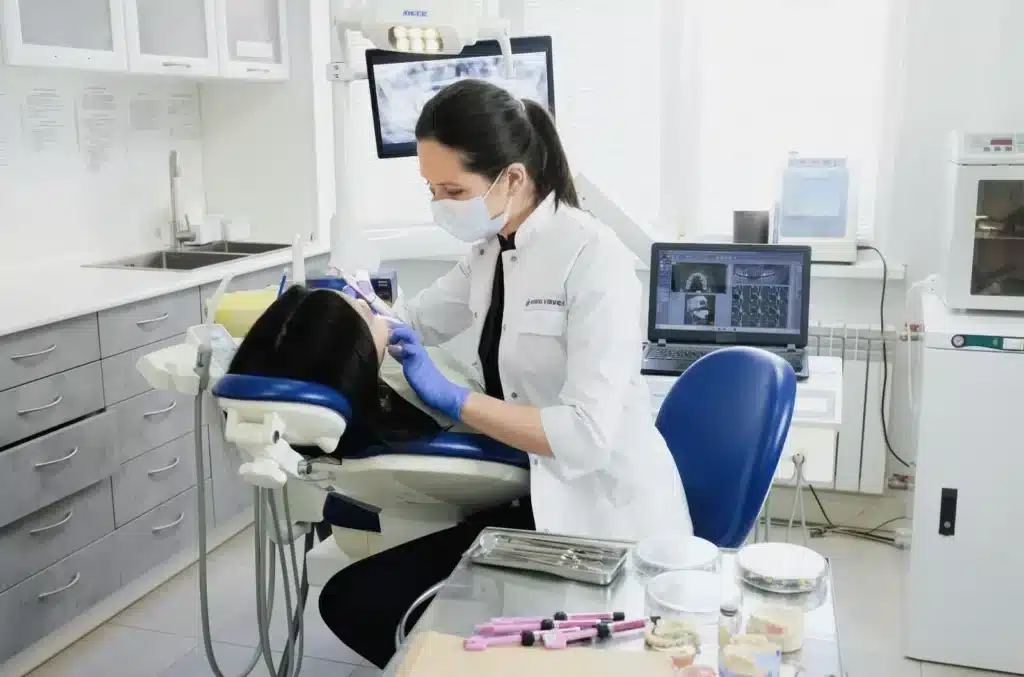Experiencing anxiety about visiting the dentist? Learn all about sleep dentistry to avoid dental checkup anxieties. Many people prefer a toothache at home rather than seeking treatment at the dentist. Just know that you’re not alone in this sentiment.
Global research indicates that over 60% of individuals worldwide fear dental appointments. However, to address this issue, the field of dental medicine offers a solution known as sleep dentistry. This article explains sleep dentistry, its benefits, and how it can positively impact those seeking dental care.
Sleep Dentistry
Sleep or sedation dentistry is designed to get relaxation within your nervous system. This causes comfort throughout your dental procedure. During the process, temporary numbing is applied to reduce pain sensation.
How Sleep Dentistry Works?
The level of anxiety management determines the extent of sedation required. Typically, three types of sedation techniques are used:
Light Sedation
You’ll experience minimal sedation during this level, ensuring you remain calm while awake.
Moderate Sedation
You’ll have consciousness throughout the procedure, with some memory loss. During the moderate sedation phase, speech might become slurred, and a dizzy sensation may occur. Some individuals might briefly fall asleep but awaken quickly afterward.
Deep Sedation
You’ll be either partially or completly unconscious in this form of sedation. Patients regain consciousness only when the effects of the sedative wear off, and recovery requires a specific period.
Various methods are utilized for administering sedation:
- Intravenous (IV) sedation
- Oral sedation (through pills)
- Inhalation of nitrous oxide
- Intramuscular sedation

When do we Need Sleep Dentistry?
Sedation dentistry is suitable for individuals who:
- Suffer from mental disorders
- Do not experience desired effects from local anesthesia
- Dental fear of dental visits
- Undergoing distressing dental procedures
- Have mental conditions that can be worsen by stress
Safety Measures
Sleep dentistry is generally a secure procedure by a licensed practitioner. A majority of dentists have the necessary qualifications to administer mild sedation.
However, your dentist needs to have specific licenses for deep sedation. Typically, oral and maxillofacial surgeons are qualified to conduct deep sedation.
To be a well-informed patient, consider the following guidelines:
- Ensure your dentist reviews your medical history and any medications you are on.
- Inquire whether the sedation is suitable for your age and health condition.
- Acknowledge the potential risks associated with the procedure and seek clarifications if you have uncertainties.
- Your dentist should actively monitor your signs throughout the treatment.
- Ensure that your dentist is equipped with the necessary medications and oxygen to counteract the effects of sedation.
Conclusion
Don’t allow your dental fear stop you from maintaining oral well-being. Sleep dentistry is a beautiful solution if dental offices make you fear dental visits. For additional details, feel free to contact us.


